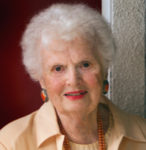By Natasha Josefowitz, ACSW, Ph.D.

LA JOLLA, California — The faculty at the UNH Whittemore School of Business and Economics (WSBE) welcomed me as their only female member. Allan Cohen, Steve Fink, Robin Willits, Herman Gadon, and I worked well together. Our approach to teaching was very innovative. We used the classroom as a business model: students (employees) were divided into small groups with a leader (a manager) who would regularly report to the faculty member (the CEO) on the progress of his or her group. Our method became well-known. Members of the Harvard Business faculty came to observe us in our classrooms and adopted our method. Herman would review my teaching notes before every class and would coach me on how to integrate this method. I was both excited and anxious about teaching material that was new to me. I have always lived by the motto “identify the fear and go there,” so I walked bravely into the classrooms.
Our group was contracted to write a textbook about this innovative classroom method. Being part of the group discussions was very valuable to me. In addition, a publisher was looking for an instructor’s manual to be published alongside the textbook. Much to my colleagues’ relief, I had retained all of my class notes and thus I was able to write the instructor’s manual. Our book Effective Behavior in Organizations was adapted by a large number of universities and colleges. Fifty years later I still receive royalties.
Besides teaching organizational behavior, I taught courses such as conflict management, organizational development, and interpersonal and group dynamics. Teaching all these courses was enhanced by my background in social work. Unbeknownst to my management students, they were also becoming good case workers, which I believe good managers should be. I developed training sessions for the UNH staff and was the first-year MBA program coordinator in 1978-79. Being math anxious myself, I chaired a seminar on math anxiety on campus in 1979. The UNH women faculty members had never met as a group, so I invited them all to my home. We called ourselves Concerned Women Faculty and met on a regular basis. Together we addressed the issues relating to our students.
Being the only female faculty member at WSBE presented some problems as well as advantages. At the various parties we were invited to, such as the annual Christmas party for all faculty members, I had to choose between being part of the group of professors talking about work, or joining their spouses, all of whom were women. I switched back and forth; it didn’t work very well. One of the advantages was being available and trusted by my female students who were often in my office talking about their issues with discrimination, both in the classrooms and workplace.
This was the impetus for me to teach a course for women in management, which turned out to be the first such course taught in the U.S. I taught this course in chronological order: resume writing, interviewing techniques, first day on the job, handling harassment, dealing with children at home, becoming a middle manager and eventually the CEO/head of the organization—examining the discrimination experienced at every stage along the way.
I was writing about issues women encountered in the workplace including suggestions on how to best deal with these issues without alienating the people they had to work with. My articles appeared in dozens of publications as diverse as The Harvard Business Review, Personnel Administration, Ms. Magazine, and even Playboy.
We both pursued other consulting opportunities. Herman was a labor arbitrator. He often returned from his travels to Boston late at night and had to teach early the next morning at UNH. While in Switzerland, he studied the German system of staggered work schedules and wrote articles and a book on flexible working hours. When Herman introduced this concept in the United States, it was first employed by the government. He spent much time traveling to Washington, D.C. to implement this new scheduling idea. “Flextime,” as it became known, was adopted by a large number of organizations throughout the country.
When Alice Sargeant, the Dean of a Catholic college run by nuns in Washington asked me to teach my class on women in management on weekends, I accepted. I would fly down each Friday night to teach on Saturday and Sunday, and would fly home on Sunday evening to resume my classes on Monday. Alice and I became good friends. A couple of years later, Alice rented us her house in La Jolla while we took a sabbatical leave; this changed the course of our lives.
© Natasha Josefowitz. This article appeared initially in the La Jolla Village News. You may comment to natasha.josefowitz@sdjewishworld.com